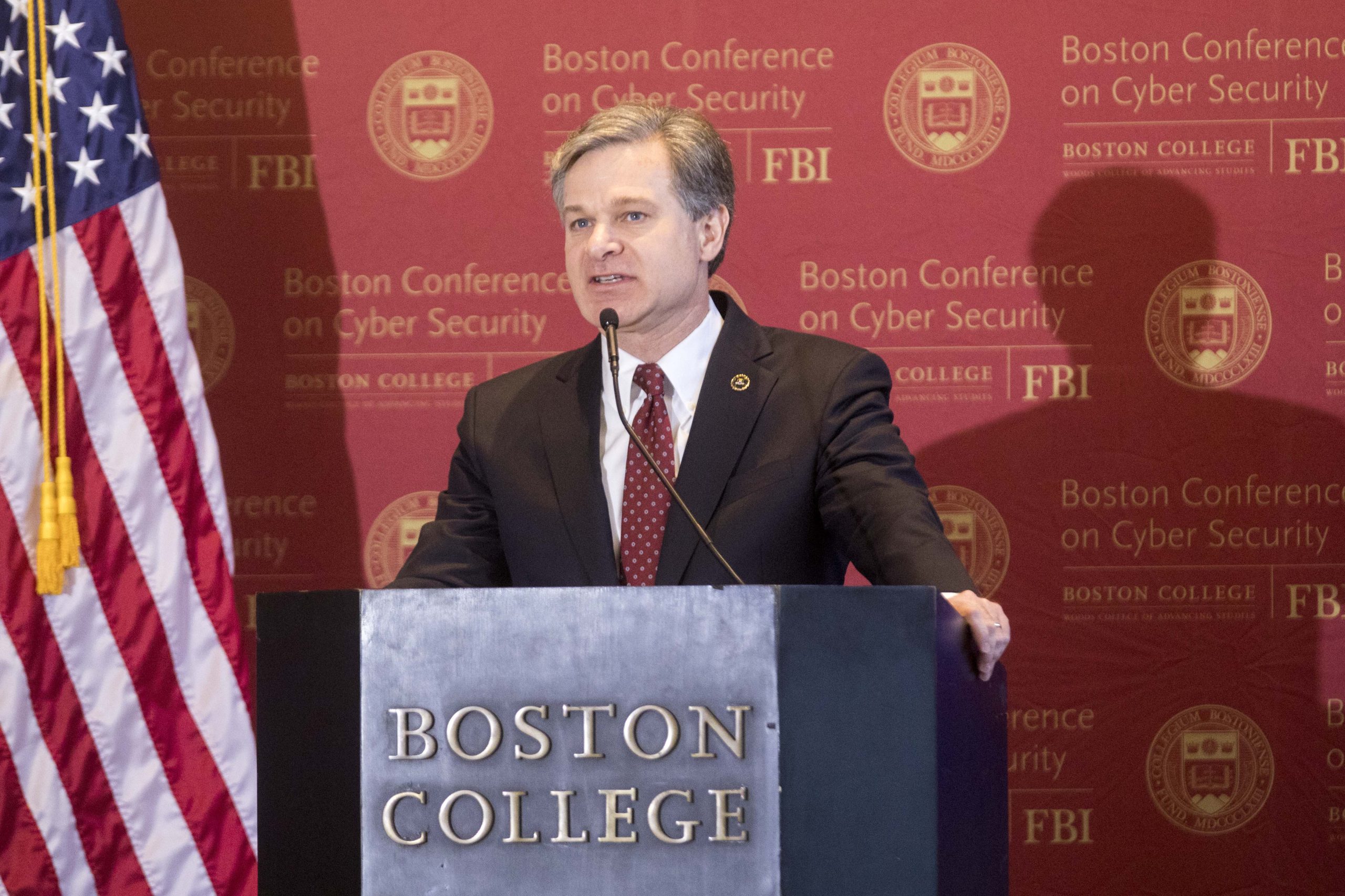FBI Director Christopher Wray again has called for a solution to what the bureau calls the "Going Dark" problem, the idea that the prevalence of default strong encryption on digital devices makes it more difficult for law enforcement to extract data during an investigation.
However, in a Wednesday speech at Boston College, Wray again did not outline any specific piece of legislation or technical solution that would provide both strong encryption and allow the government to access encrypted devices when it has a warrant.
A key escrow system, with which the FBI or another entity would be able to unlock a device given a certain set of circumstances, is by definition weaker than what cryptographers would traditionally call "strong encryption." There's also the problem of how to compel device and software makers to impose such a system on their customers—similar efforts were attempted during the Clinton administration, but they failed.
A consensus of technical experts has said that what the FBI has asked for is impossible.
"I recognize this entails varying degrees of innovation by the industry to ensure lawful access is available," Wray said Wednesday. "But I just don’t buy the claim that it’s impossible."
Wray reiterated that during fiscal year 2017, the FBI was unable to get into nearly 7,800 encrypted devices—"more than half of all the devices we attempted to access in that timeframe."





 Loading comments...
Loading comments...
